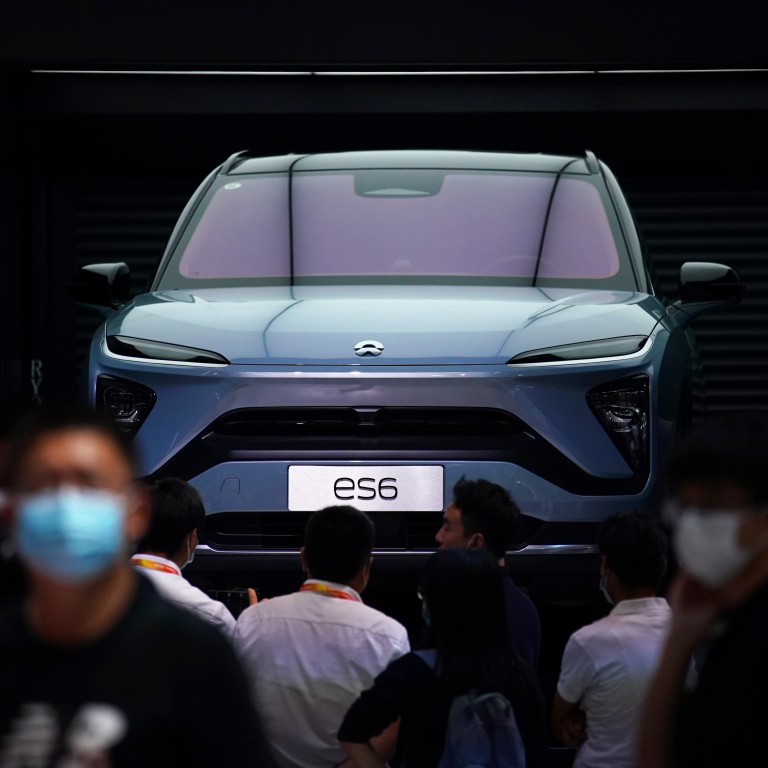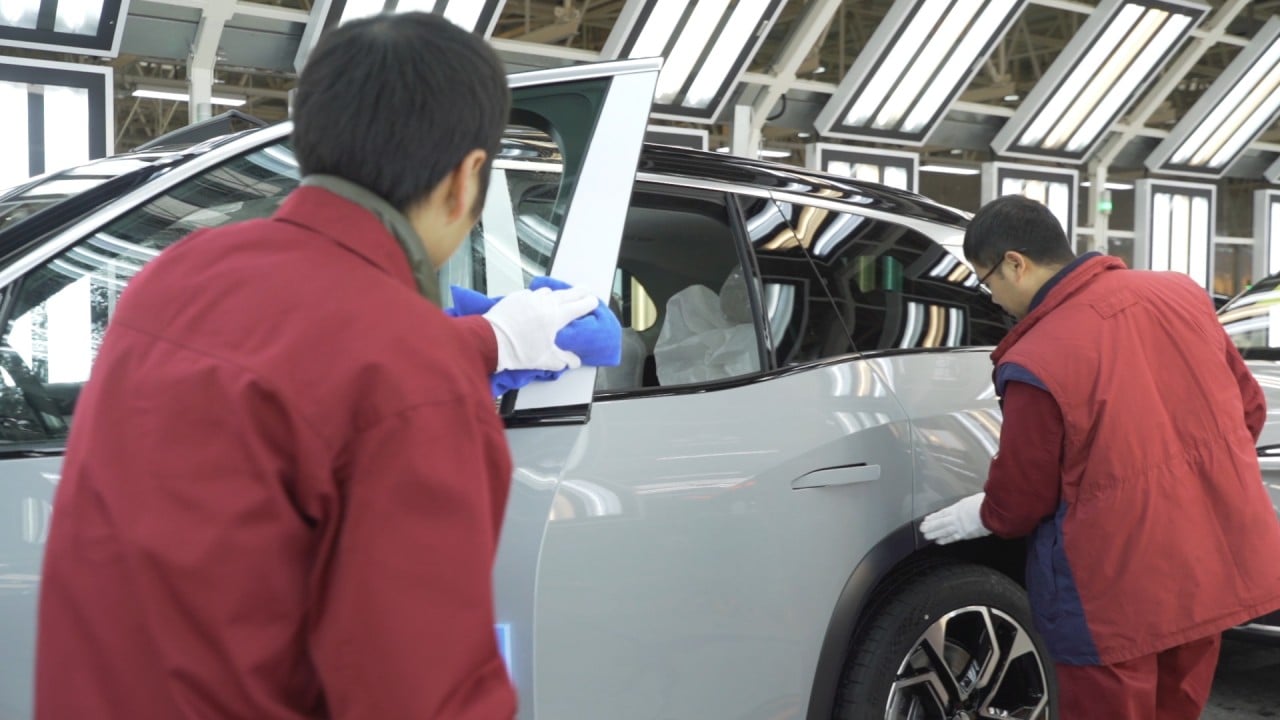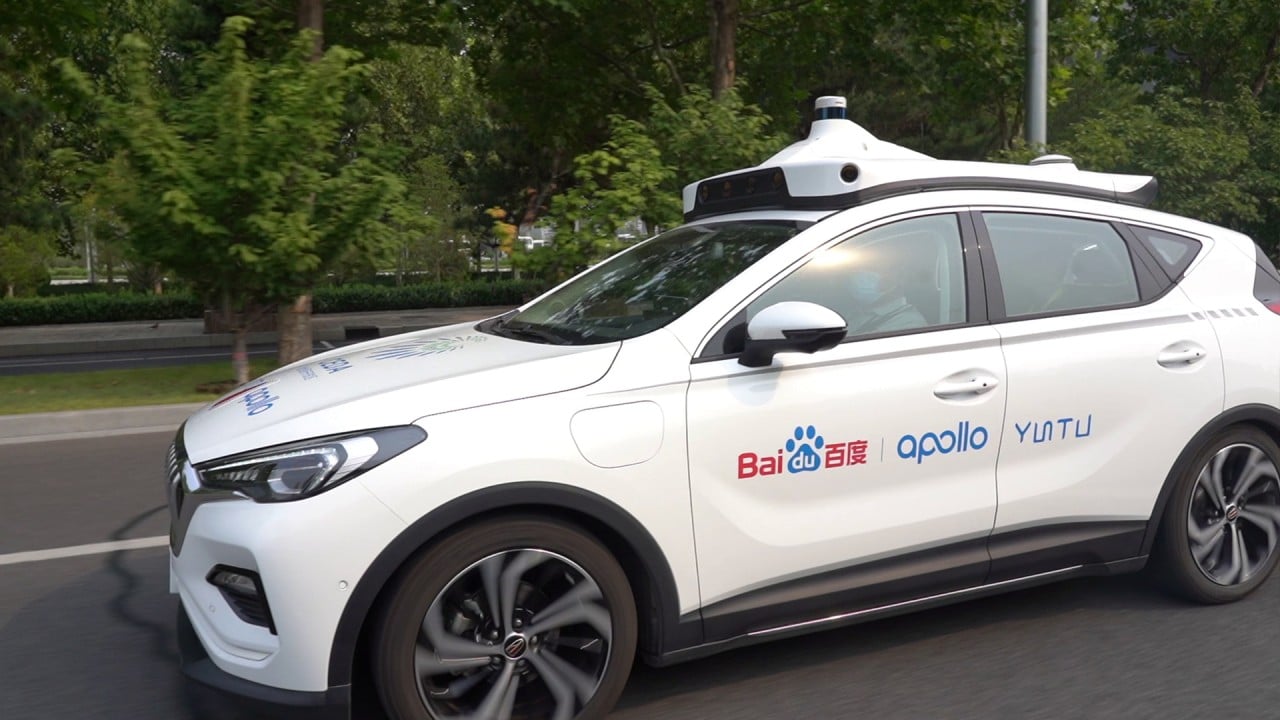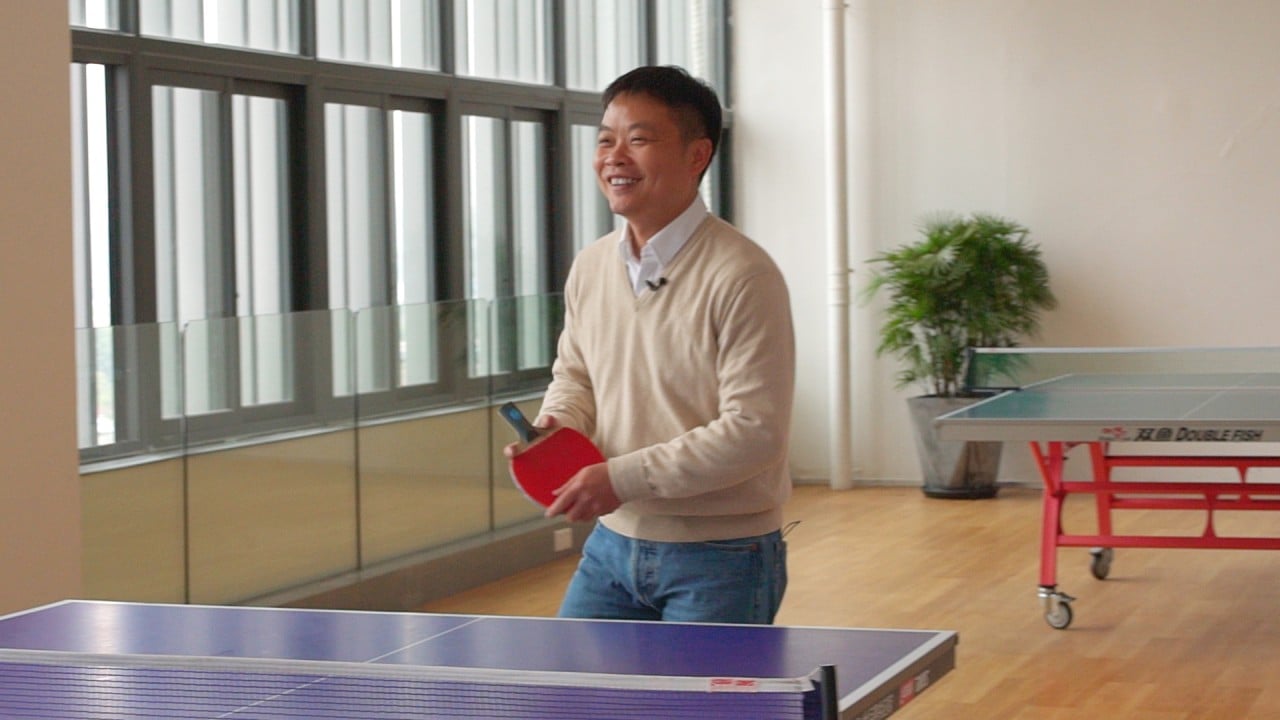
China’s electric car start-ups – NIO, Xpeng and WM Motor – each have a Big Tech backer. What is riding on their success?
- Alibaba, Tencent and Baidu are supplying electric car start-ups technology in the hope of creating synergies between them and defining the future of mobility
- China’s digital giants will dominate in-car connectivity features and operating systems, according to McKinsey
“At the end of the day, it is a competition of technological strength in the EV industry,” said Cao Hua, a partner at the private equity firm Unity Asset Management. “It is important for them to have powerful backers who can offer both financial and technological support.”
Although none of these EV start-ups has been profitable so far, each has raised billions of dollars from the online tech giants as they look to put their technology in internet of things, 5G, cloud services and artificial intelligence to use in autonomous driving, navigation and in-car entertainment. The race is to define and set the industry standard and generate a steady stream of revenues either through licensing their technology or through digital subscription services.

01:21
Nio enhances production efficiency amid rising orders for its electric-powered SUVs
In this pursuit, the EV makers and their backers have the support of the Chinese government, which wants the country to lead the world in such technologies by 2025 and wants to see 30 per cent of cars sold by then to have smart connectivity.
According to a 2019 study by McKinsey & Co, Chinese digital giants will dominate in-car connectivity operating systems, and develop the industry standard.
“Chinese consumers’ relatively high willingness to try new digital products and mobile services, and the advanced level of China’s mobile payments ecosystem, present a great opportunity for China’s digital giants to dominate in-car connectivity features and operating systems,” it said.
These digital services and products targeted at China’s car industry could be worth 1 trillion yuan (US$153 billion) annually, according to a forecast by the Ministry of Industry and Information Technology, which did not say when the milestone would be achieved.
China leads the battery-making industry. What will it take for global competitors to catch up?
“EV is a strategically important industry because it goes beyond carmaking,” said Gao Ting, head of research at Nomura Orient International Securities. “Policy support to the sector, such as cash subsidy, is expected to have a long-term positive impact [on the economy] as related industries and technologies also develop.”
In June 2019, before NIO’s finances came under strain and put it on the verge of bankruptcy in November, Tencent had invested another US$10 million to show its continued support for the embattled start-up.
As of July, Tencent owned a 16.3 per cent stake in NIO, the second-largest shareholder behind founder and chief executive William Li.

04:07
China’s automated driving technology speeds ahead with research by search engine giant Baidu
NIO’s fortunes have since improved, with sales rebounding in the second half of this year. The surging stock price helped it surpass century-old Ford in terms of valuation last month and secure the No 6 place in the ranking of the world’s most valuable carmakers.
Apart from the financial windfall through the paper gains of NIO’s share price, Tencent is hoping that its self-driving system takes off.
He was named as president of UCWeb and Alibaba Mobile Business Group after the acquisition. The entrepreneur left Alibaba in 2017 and joined Xpeng as chairman of the EV start-up.
Alibaba owned 13.3 per cent of Xpeng after its initial public offering in August, when the electric carmaker netted US$1.5 billion from its New York Stock Exchange flotation.

02:33
Electric cars and Ping Pong: He Xiaopeng, CEO of Chinese electric car start-up Xpeng, on problem solving
Baidu is one of the largest shareholders of WM Motor, which is yet to go public. In September, Baidu was among a group of investors that injected 10 billion yuan into the EV start-up in the Series D round of funding.
The tech giants expect to see some returns on their investment and widespread use of their technology eventually before they lose patience with these loss-making EV start-ups, said Ding Haifeng, a consultant with Shanghai-based financial advisory firm Integrity.
“In terms of use of technology in the EVs, those that can race ahead of rivals in making cars smarter will gain an upper hand,” Ding said. “Consequently, interactions with the shareholders in understanding and applying the new technologies will gain greater importance.”

